 Campus life
Campus life
The festival in a nutshell
The 21st Toruń Science and Arts Festival is fast approaching. The programme for this year's edition, whose theme is "Five Centuries after Copernicus", will include about 100 events. The event will last from 22 to 24 April.
It is already a tradition that every year Toruń becomes the capital of science and art for a few days. Researchers and students from the Nicolaus Copernicus University and employees of local cultural and scientific institutions present their achievements, their disciplines and current research topics in an accessible and attractive way. The science celebration is also an opportunity to take a peek into places that are normally inaccessible - laboratories, museum storerooms, artists' studios and the back rooms of companies and institutions.
What, where, when?
The 21st Toruń Festival of Science and Arts will begin on Saturday 22 April and continue until Monday 24 April. The detailed programme of the festival is published on festival's website. On Friday 14 April at 3 p.m., electronic registration for the events will begin.
Participation in all festival events is free of charge; however, pre-registration is required for some of them. This applies especially to the events where there is a seating limit. These include various workshops, small screenings and meetings. Registration will be possible via the festival website.
During the preparations for the organization of last year's twentieth anniversary edition of the Toruń Science and Arts Festival, the Program Council conducted consultations and commissioned surveys among the organizers of the events, taking into account the opinions of the audience. Based on the results, a unique formula of the Festival was developed, consisting of thematic blocks, which - to avoid dispersion - are concentrated in several zones. This will also be the case this year.
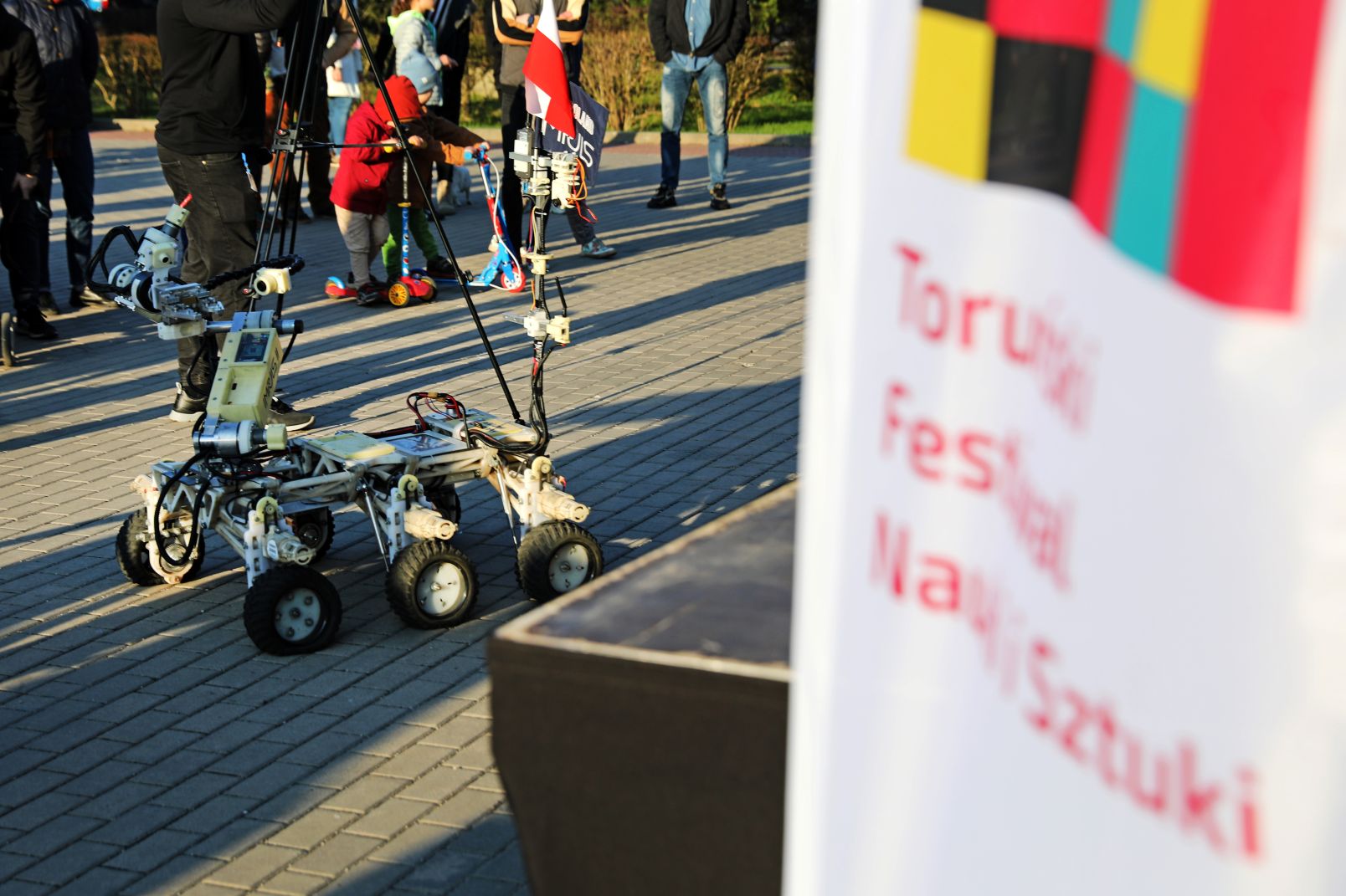
fot. Andrzej Romański
Festival map
The festival will be located in five areas: the University Campus in Bielany (Monday 24 April), Podgórze (Saturday 22 April), the Old Town (Saturday 22 April), the Faculty of Fine Arts (Saturday and Monday, 22 and 24 April) and the Mill of Knowledge and Culture (Sunday 23 April), hosted by the Mill of Knowledge Centre for Modernity and the Voivodeship Centre for Cultural Animation.
The zones will present thematic blocks - each with events linked by the issues raised and the format.
So, what can we expect?
On Saturday, the first of the zones, the Old Town, will host a 'Popular Science Picnic', where the young and the old will be able to experiment with science. The "Cave of Wisdom" invites you to a series of lectures on many different and interesting research topics. Scientific innovations and curiosities will be explored in the "Medicine and our lives" block. We will also take a look at the District Museum, has prepared the "Museum mysteries" block, and the Children's Creative Art Centre and Gallery will invite the youngest visitors to the "Tails under the stars" block. Traditionally, historians are in charge of a strong festival accent, having prepared "Not a bad story!". Thanks to their ingenuity and creativity, we will be transported, among other things, to a medieval street exactly like the one that Nicolaus Copernicus might have walked down. The F. Nowowiejski Academy of Music in Bydgoszcz will take us into a "Musical orbit" - it has prepared a concert of early music and a musical morning for the whole family.
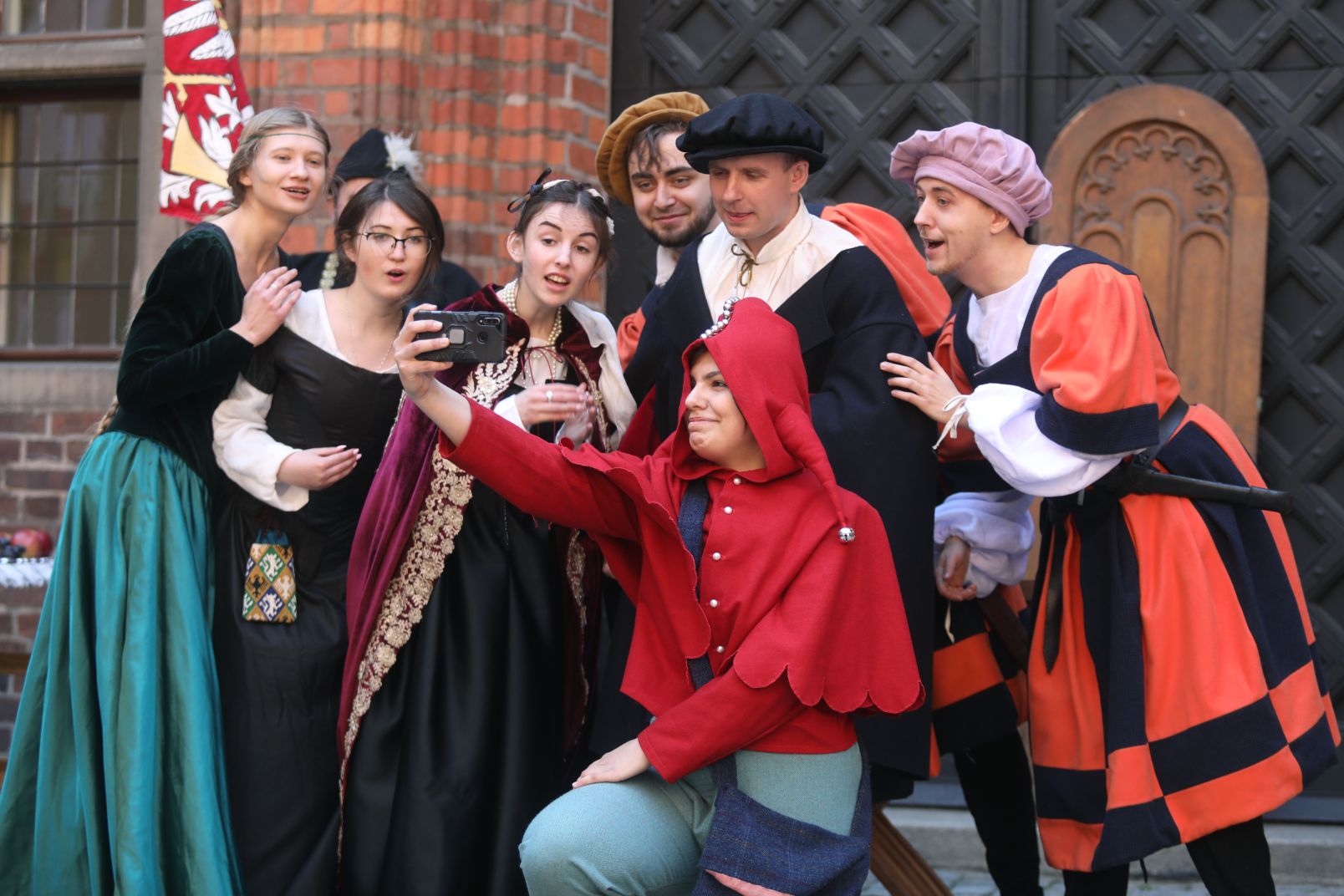
fot. Andrzej Romański
On Saturday, it is also worth going to the other side of the Vistula - the Artus Court Cultural Centre invites you to the "Cultural Left Bank - Podgórze Cosmos" block. It offers a range of workshops for children, whole families and older audiences alike.
"Into the depths of art" is a proposal of the NNCU Faculty of Fine Arts. We will be able to participate in workshops on, among other things, printmaking, drawing and conservation for two days - on Saturday and Monday (22 and 24 April).

fot. Andrzej Romański
Sunday belongs entirely to our partners - the Mill of Knowledge Centre for Modernity, which traditionally invites you to a great science picnic, and the Voivodeship Centre for Cultural Animation and its great initiative, the Clinic of Culture, which the organisers are so enthusiastic about:
This time, the medical consilium will invite patients to the newly opened outpatient clinic at ul. Kościuszki 75-77. It will provide cultural saturation checks, cultural brain X-rays and recommendations for the creative clinics. The diagnostics will take place in the form of a performative walk, during which the creative staff will apply theatre, film, music, photography and art treatments, among others. A distinguished group of professors have ruled that they will help all the afflicted by offering exclusive ways of cultural therapy. Who among us does not struggle with a temporary lack of creativity and damage to the imagination? Who doesn't suffer from problems with concentration and self-confidence? And finally, who hasn't had a loss of brilliance? If you see any of the above-mentioned deficiencies in yourself, the Culture Clinic will patch them up at once, specifically through shock therapy, regenerate your body and calm your spirit. We will inject you with culture.
Monday 24 April is a day to visit the Bielany campus. Scientists will be waiting there, mainly for pupils, with an "Action-Education" block, while whole families are welcome at the "Science Campus Picnic". Lawyers have prepared a series of lectures and meetings devoted to Copernicus, and lectures from the "Inner constellation" block also seem interesting.
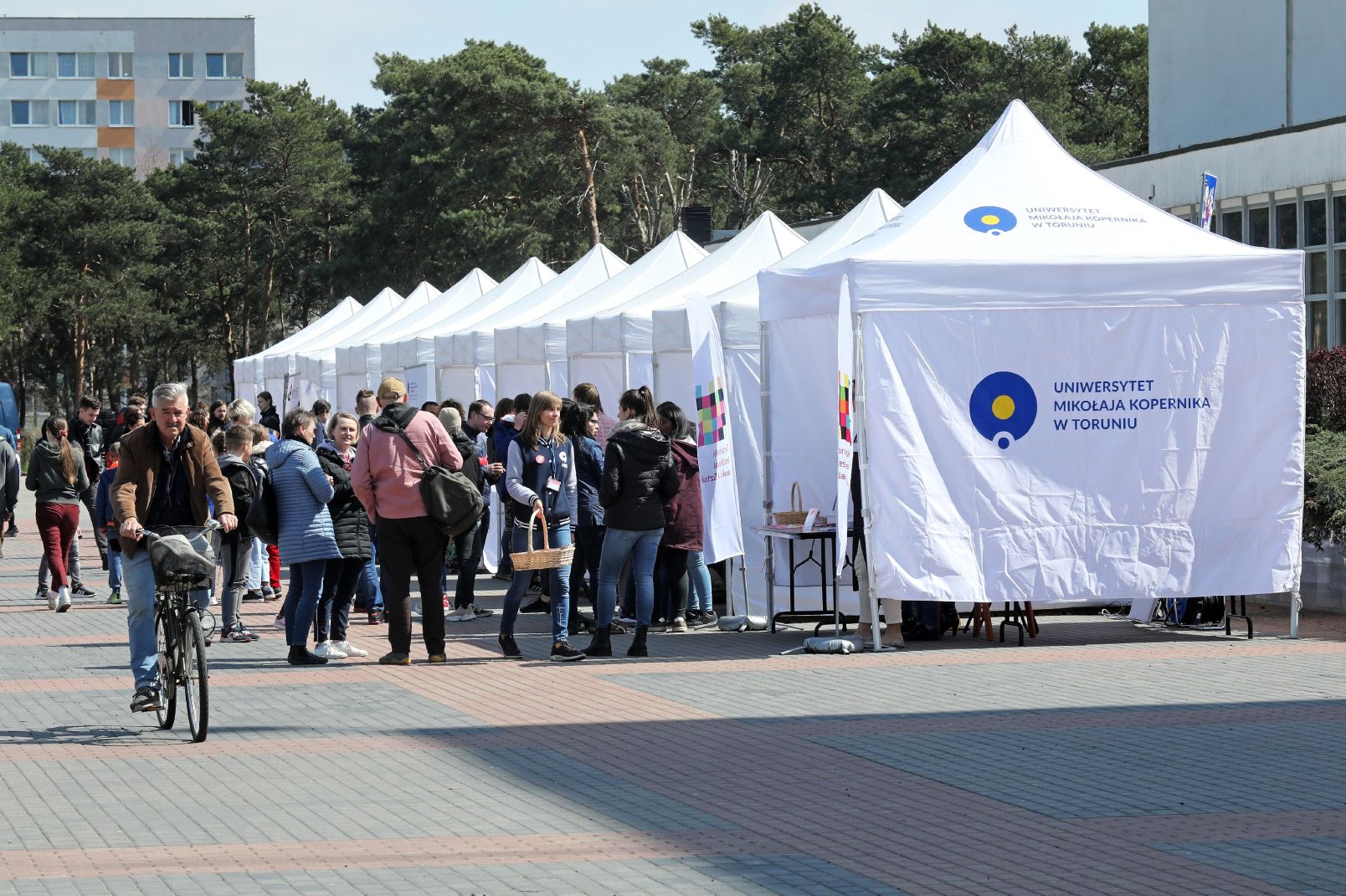
fot. Andrzej Romański
However, that is not all. Festival guests can also look forward to a trip to the Observatory of Astronomy in Piwnice.
The programme also includes accompanying events, such as the premiere of the screening of Here is the Cosmos at the Planetarium (Saturday 22 April') and the 9th Book Run with "Szymborska's Gardends". Registration for the latter event has already begun - those interested may register until Wednesday 19 April.
Festival with Copernicus
The popular science festival traditionally has a theme or slogan - referring to current research topics and world events. In previous years, these included Time and Space, Energy and the Vistula. This year, the theme is linked to Nicolaus Copernicus.
It could not have been otherwise - the Senate of the Republic of Poland, wishing to commemorate the eminent scientist, established the year 2023 as the Year of Nicolaus Copernicus on the 550th anniversary of the birth of the great astronomer and - at the same time - the patron of our University.
An eminent astronomer, founder of the heliocentric theory, mathematician, lawyer, physician, economist and theologian - Nicolaus Copernicus was well-educated and possessed knowledge and skills in many areas of science and life. During the Festival, we will examine science "Five centuries after Copernicus", and of course there will also be events related to the life and times of the great astronomer.
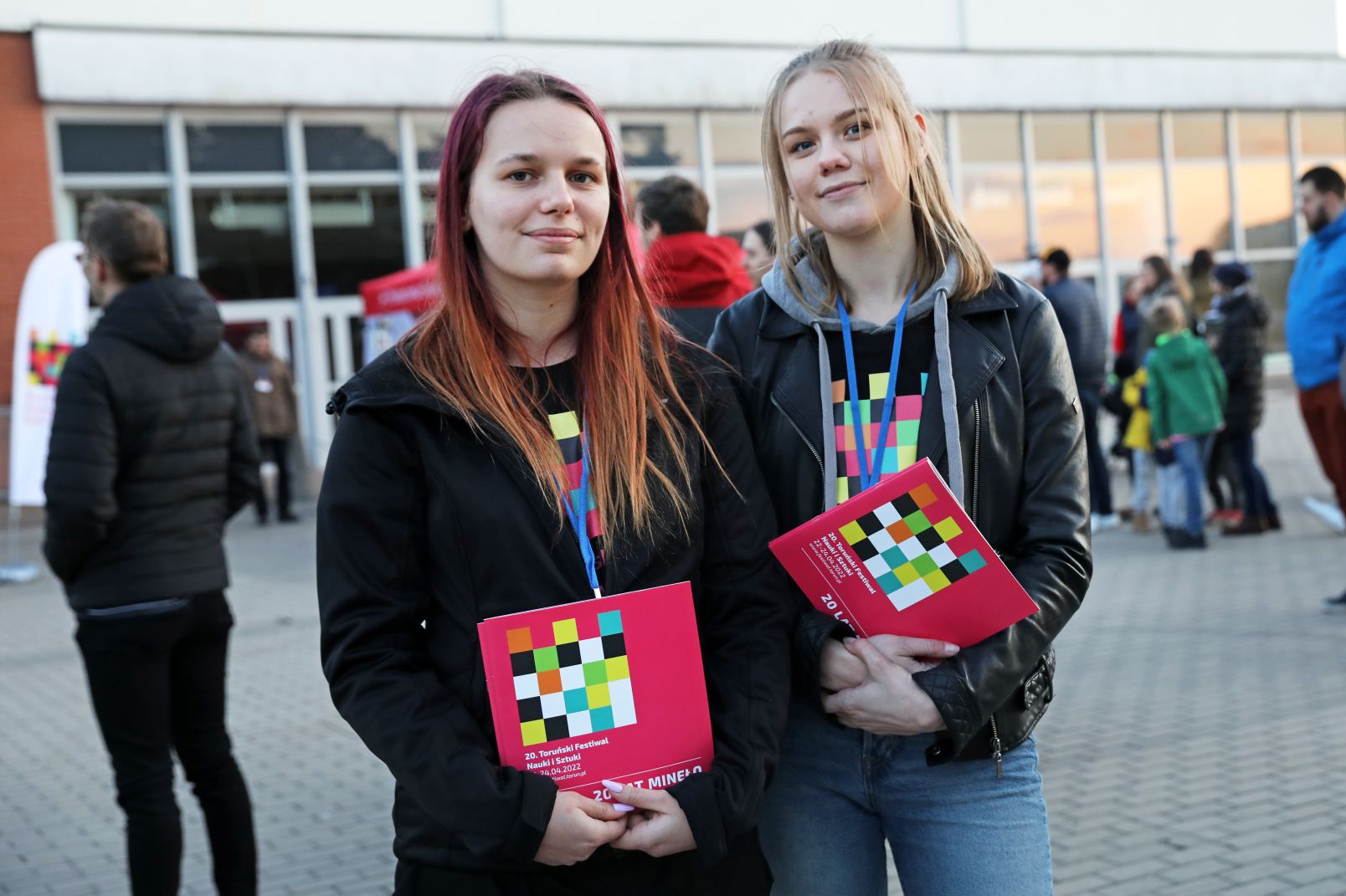
fot. Andrzej Romański
Of the nearly 100 events in the programme, many relate to the theme in an extremely attractive way - they can be found in almost all the blocks and zones of the Festival. This is the case, for example, with the 'Cave of Wisdom' block, where we can expect a series of short popular science lectures, as well as activities prepared by chemists - children will wonder what little Copernicus was doing when it was raining. High school pupils will try to create a cinematic universe and then look at the Earth's hydrosphere through the eyes of a satellite, while the 'Copernicus Logic' puzzle tournament, planned in the format of the TV quiz show 'Bet a Million', awaits those of all ages. We will learn about Copernicus as a lawyer, chemists will refer to his work "On the Revolutions of the Celestial Spheres", and mathematicians will find out what Gothic ornaments can be found on the façade of the astronomer's house. Young people will design a large-format street art stencil with an image of Copernicus, and whole families will participate in a field game in search of a lost Copernicus manuscript. Astronomers will tell us about the new planets - together we will consider whether they would have been of interest to Copernicus.
There will also be an opportunity to "travel back in time" - with archaeologists we will meet medieval craftsmen and warriors, and with historians we will take a walk along a street from centuries ago, we will also go to a concert - we will listen to songs known and loved in the time of Copernicus.
As in the past 20 editions, the programme and forms of communication will be rich and varied. We guarantee that regardless of age, everyone will find something of interest for themselves.
Musical opening
Finally, let us mention the beginning. The opening of the Toruń Festival of Science and Arts will be a real musical feast. On Saturday 22 April at 6 p.m. in the Nicolaus Copernicus University Aula at Gagarina 11, we will see "Revenge of the Bat".
The full-scale operetta performance was prepared by students of the vocal-acting and instrumental faculties of the F. Nowowiejski Academy of Music in Bydgoszcz. The young musicians have been supervised by experienced producers - Grzegorz Boniecki (Warsaw Chamber Opera) is responsible for directing, while Piotr Wajrak (Opera Nova) is in charge of musical supervision.).
"Revenge of the Bat" can be seen by anyone interested. Admission is free and there is no registration, but places are limited.
The work of Johann Strauss's son is regarded as a model of its genre. Above all because of the wonderful music - we are going to listen to waltzes, polkas and arias, and the amazing overture will want to move us to dance. The entertaining and interesting libretto is also a huge asset - we vouch that the story will draw the audience in.
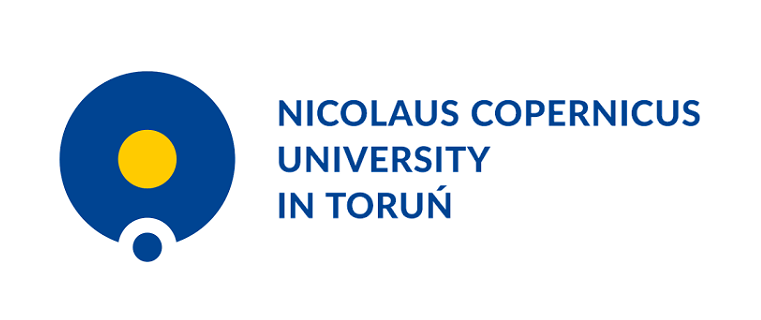 NCU News
NCU News






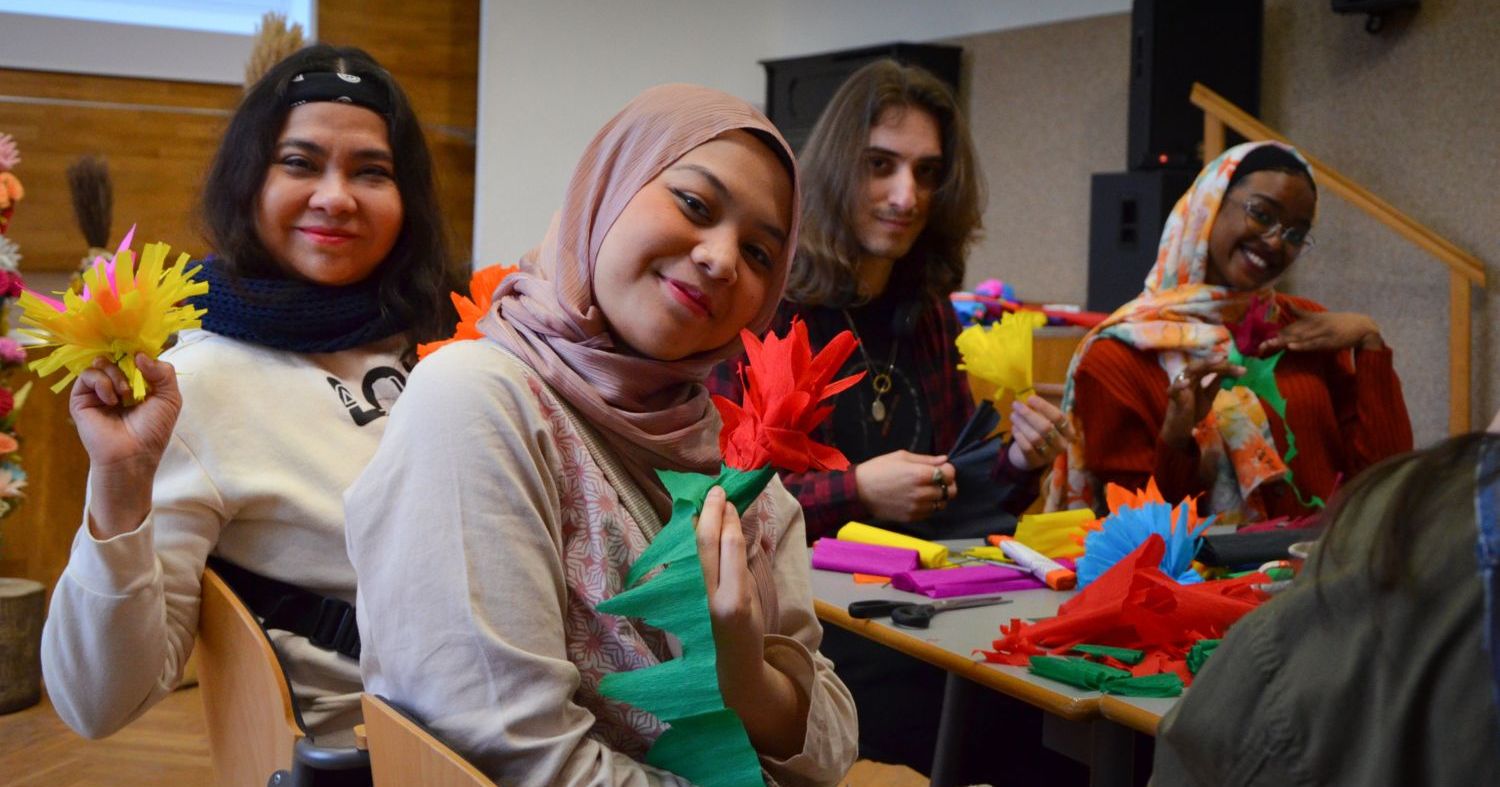 Campus life
Campus life
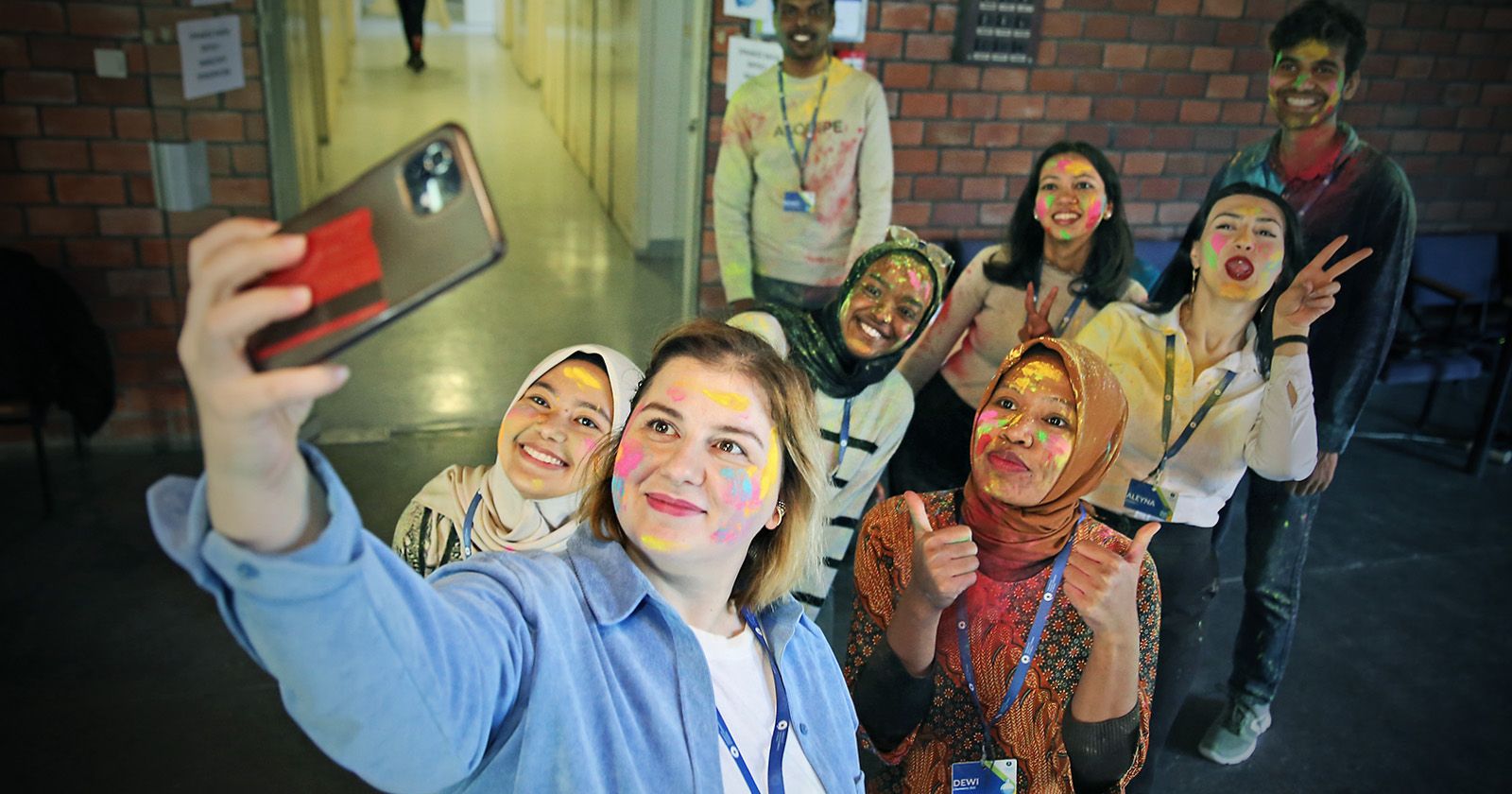 Campus life
Campus life